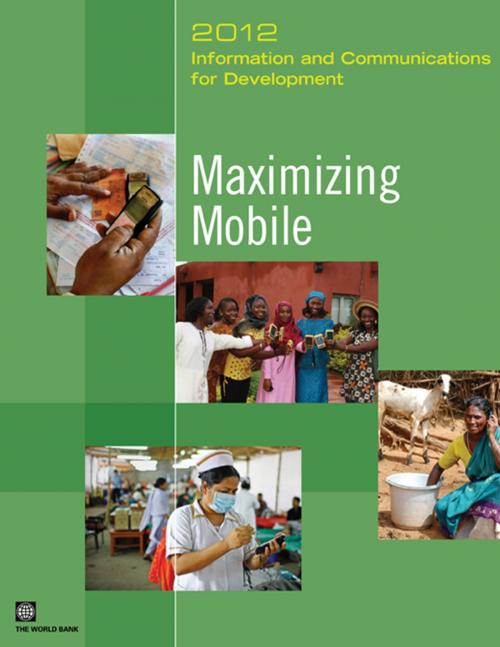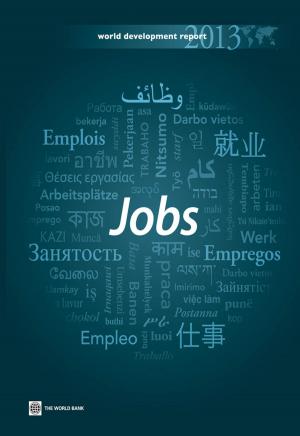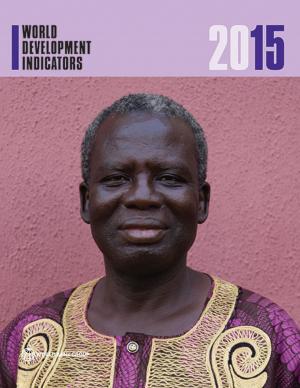Information and Communications for Development 2012: Maximizing Mobile
Business & Finance, Economics, Economic Development, Industries & Professions, Industries| Author: | World Bank | ISBN: | 9780821395875 |
| Publisher: | World Bank Publications | Publication: | August 15, 2012 |
| Imprint: | Language: | English |
| Author: | World Bank |
| ISBN: | 9780821395875 |
| Publisher: | World Bank Publications |
| Publication: | August 15, 2012 |
| Imprint: | |
| Language: | English |
With some six billion mobile subscriptions now in use worldwide, around three-quarters of the world's inhabitants now have access to a mobile phone. Mobiles are arguably the most ubiquitous modern technology – in some developing countries, more people have access to a mobile phone than to clean water, a bank account or even electricity. Mobile communications now offer major opportunities to advance human development – from providing basic access to education or health information to making cash payments and stimulating citizen involvement in democratic processes. This 2012 edition of the World Bank's Information and Communications for Development Report analyzes the growth and evolution of mobile telephony, and the rise of data-based services delivered to handheld devices, including “apps” or smartphone applications. The report explores the consequences for development of the emerging “app economy”. It summarizes current thinking and seeks to inform the debate on the use of mobile phones for development. This report looks, in particular, at key ecosystem-based applications in agriculture, health, financial services, employment and government, with chapters devoted to each. It's no longer about the phone itself, but about how it is used, and the content and applications that mobile phones open up. Mobile applications not only empower individual users, they enrich their lifestyles and livelihoods, and boost the economy as a whole. Mobile apps make phones immensely powerful as portals to the online world. A new wave of apps and "mash-ups" of services, driven by high-speed networks, social networking, online crowdsourcing and innovation, is helping mobile phones transform the lives of people in developed and developing countries alike. The report finds that mobile applications not only empower individuals, but have important cascade effects stimulating growth, entrepreneurship and productivity throughout the economy as a whole. Mobile communications promise to do more than just give the developing world a voice – they unlock the genie in the phone, empowering people to make their own choices and decisions.
With some six billion mobile subscriptions now in use worldwide, around three-quarters of the world's inhabitants now have access to a mobile phone. Mobiles are arguably the most ubiquitous modern technology – in some developing countries, more people have access to a mobile phone than to clean water, a bank account or even electricity. Mobile communications now offer major opportunities to advance human development – from providing basic access to education or health information to making cash payments and stimulating citizen involvement in democratic processes. This 2012 edition of the World Bank's Information and Communications for Development Report analyzes the growth and evolution of mobile telephony, and the rise of data-based services delivered to handheld devices, including “apps” or smartphone applications. The report explores the consequences for development of the emerging “app economy”. It summarizes current thinking and seeks to inform the debate on the use of mobile phones for development. This report looks, in particular, at key ecosystem-based applications in agriculture, health, financial services, employment and government, with chapters devoted to each. It's no longer about the phone itself, but about how it is used, and the content and applications that mobile phones open up. Mobile applications not only empower individual users, they enrich their lifestyles and livelihoods, and boost the economy as a whole. Mobile apps make phones immensely powerful as portals to the online world. A new wave of apps and "mash-ups" of services, driven by high-speed networks, social networking, online crowdsourcing and innovation, is helping mobile phones transform the lives of people in developed and developing countries alike. The report finds that mobile applications not only empower individuals, but have important cascade effects stimulating growth, entrepreneurship and productivity throughout the economy as a whole. Mobile communications promise to do more than just give the developing world a voice – they unlock the genie in the phone, empowering people to make their own choices and decisions.















